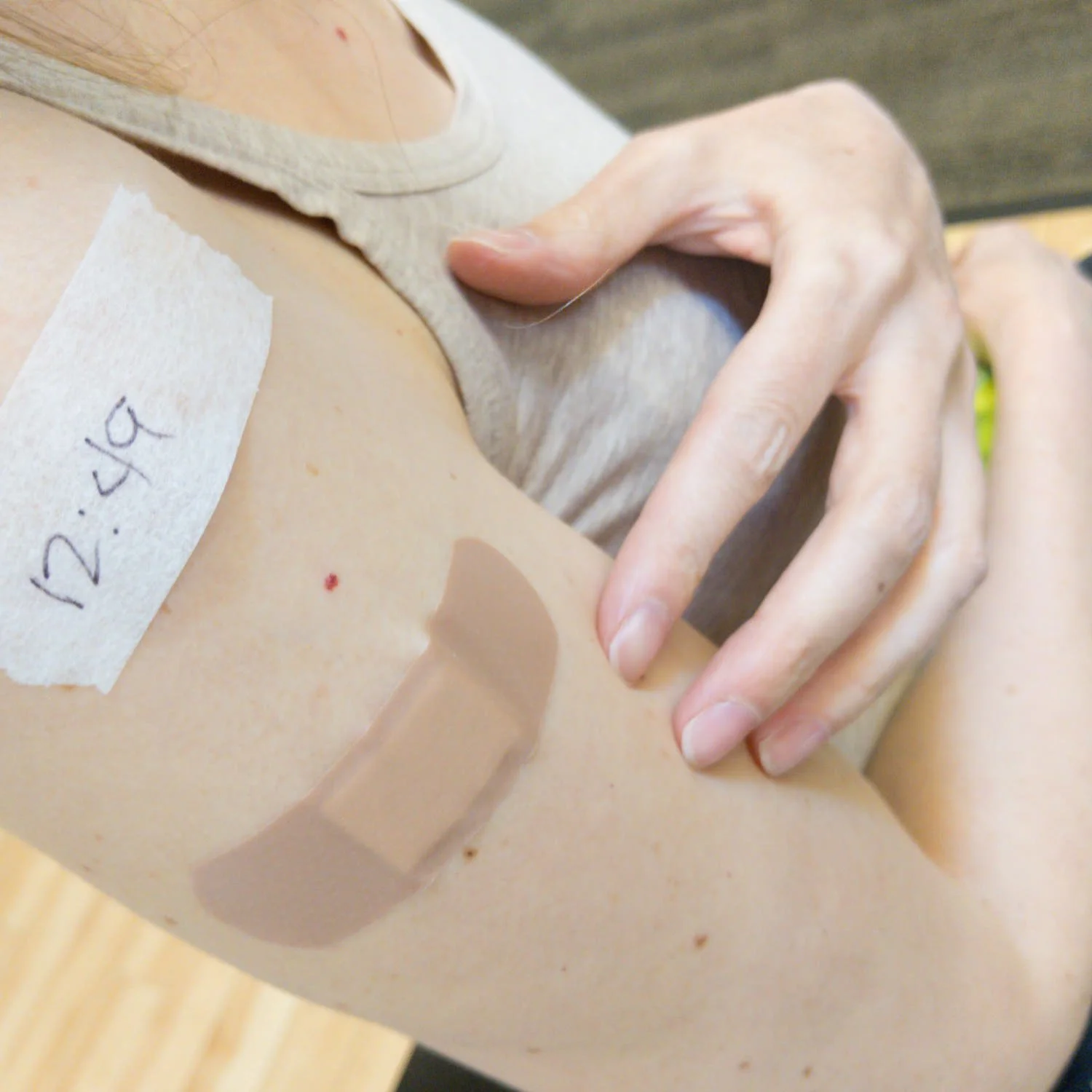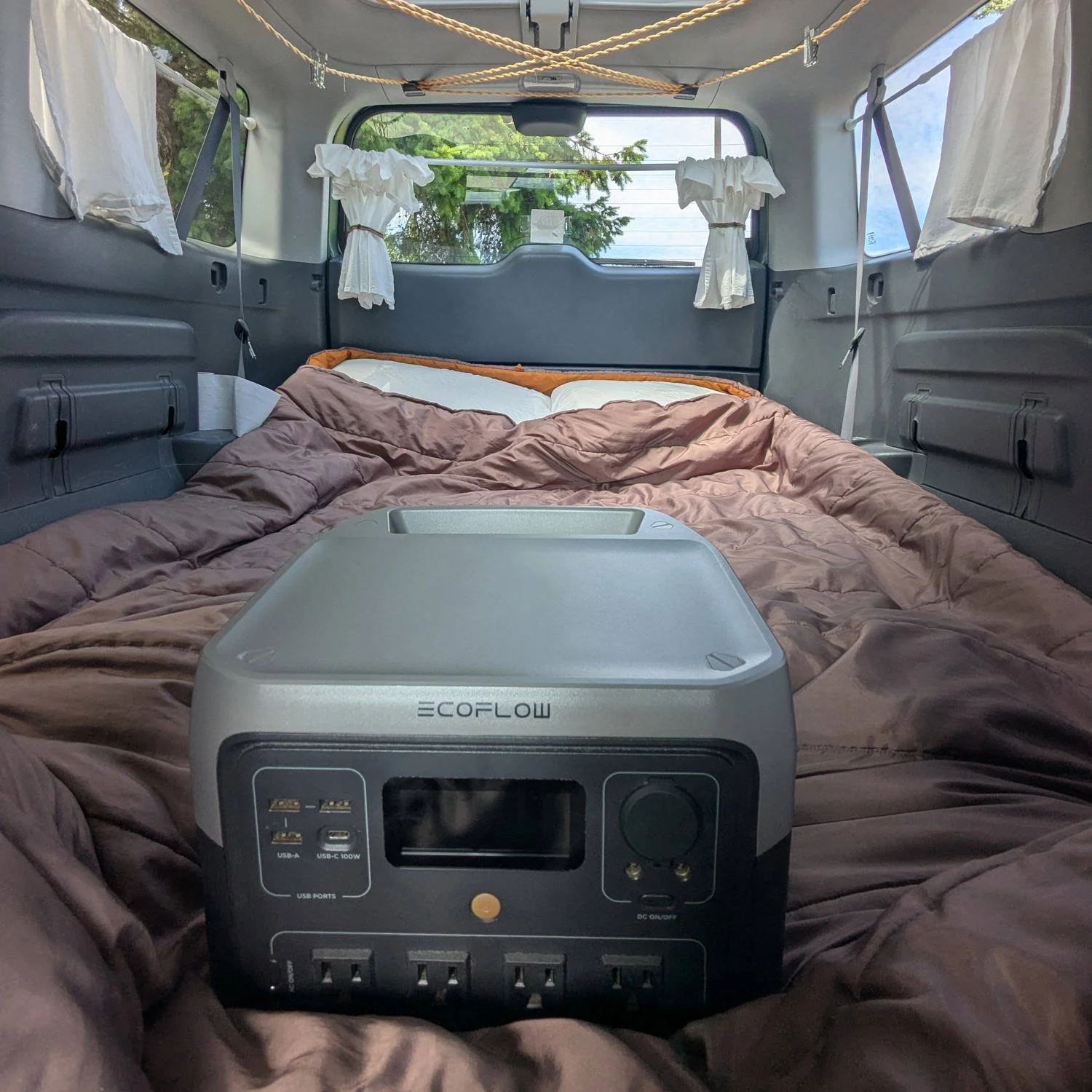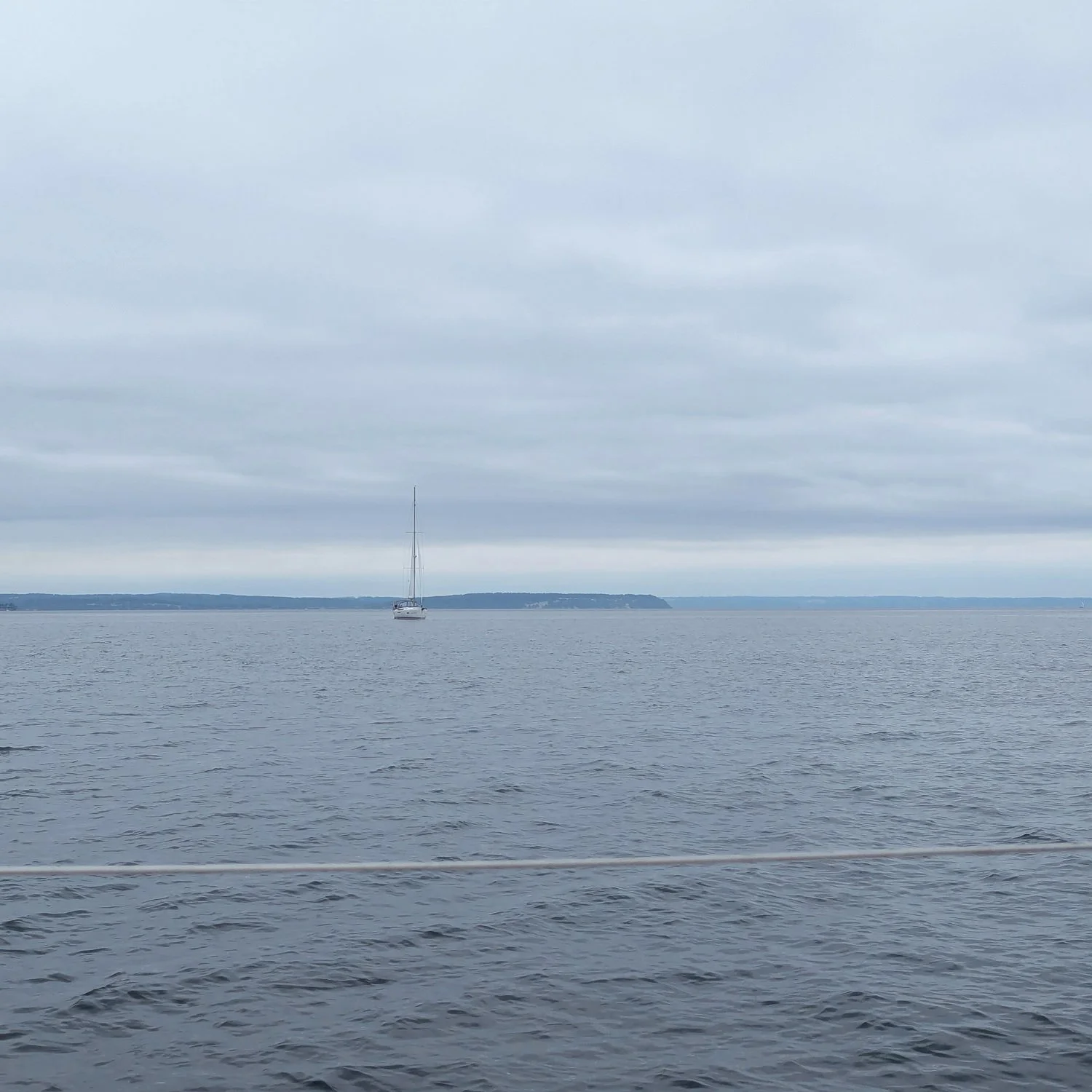Slow Travel
When I first thought about traveling more sustainably around the world, I knew it would be important to travel slowly.
I find slow travel to be a pace that allows me to feel as if I am living more like a local wherever I go, staying longer and immersing deeper.
We can pause to respect the land upon which we step and the cultures we enter.
Slow travel also helps us save our precious planet by reducing flights, allowing time to walk, bike, and choose more sustainable mass transportation.
When first contemplating slow travel, though, we can naturally wonder…
how can I afford to travel slowly?
how can I possibly handle all the logistics?
how can I pack all the essentials (for four seasons)?
how can I feel safe?
All of these thoughts can initially feel overwhelming, so I receive a lot of questions about how and why I travel slowly.
Traveling Slow, the First Time
When I was seven, loved ones were concerned that my parents wanted to take us (our family of five) on the road full-time, to travel slowly for a year.
Family and friends were worried that we (the kids) would be deprived of an education, friends, and television. I couldn’t understand those concerns, especially that last concern.
My beloved grandmother was worried that we’d be deprived of television. Until I heard her say that, I had no idea an adult could encourage television.
I was just a child, but when my dad explained that this would be an adventurous educational trip, I believed him. He was a school teacher, after all.
My parents traded what they had for what they wanted, relying on my dad’s small sabbatical stipend, some savings, and plans to work a bit along the way.
Our possessions were placed in the basement of our home, behind a locked door. The rest of our house was rented out for a year.
My grandparents sold their 16-foot travel trailer to my parents, and as a parting surprise, my grandmother insisted we take her tiny (black + white) portable television with us for the year.
We (kids) were shocked and overwhelmed. Watching Grandma hand over her beloved tiny television for an entire year felt like she loved us more than we could have ever imagined.
After attaching the travel trailer to our big blue station wagon, off we went. Frugally.
We visited every historical site possible. We formed diverse friendships that we would have never otherwise known. That immersion was what made travel so meaningful to me.
A year of full-time travel as a child was, quite literally, the best year of my childhood. It was one of the most incredible experiences of my life.
It was the best classroom ever. I loved that healthy excitement. I even noticed some individuals chose healthier behavior while traveling.
I am still grateful to have been exposed to the world out there at such a young age, and frugally. I wanted much more of it.
Returning home from that first year of full-time travel, as a child, I could see and feel why we humans needed to travel for human growth.
I firmly held the newfound belief that all children should have the opportunity to live like this. If not year-round, at least every single summer. For all three months, please.
Overall Planning
As an adult, I’ve found slow travel more affordable than traveling fast. In fact, I’ve found slow travel more affordable than living in the United States.
However, as a methodical person, I must take time to carefully prepare for slow travel, choose my options wisely, plus make flexible backup plans.
I've pulled together a few links below, which I find helpful for contemplating and preparing for slow travel…
finding digital nomad jobs + remote work (worldwide)
finding + renting fully furnished apartments (worldwide)
short-term and long-term travel insurance (for perpetual travel)
receiving mail while anywhere in the world
traveling and living out of my LOJEL Cubo luggage
finding sustainable clothing (including from Canada)
packing list (for perpetual travel)
packing a travel kitchen
getting through airport security (in an organized manner)
avoiding loneliness while traveling slowly
free + affordable crisis support (worldwide)
Communicating / Foreign Languages
I want to learn more languages, but it’s never been necessary for me to learn foreign languages to travel. I’ve experienced most of my travels without knowing the languages of the countries I visit. However, it’s most thoughtful to learn a few words out of respect. This attempt is genuinely appreciated (and feels extra meaningful when spoken with a hand over the heart)…
hello
please
thank you so much
goodbye
Translate (free)
I translate nearly everything, for free, via this free Translate tool
I type, talk, or position my cell phone camera on any text
I read it, hold it up and show it, or press play to communicate
libraries as language learning centers (free)
a homeschooling teacher and her wise students shared this wonderful resource!
library books, audio + video lessons can help one learn a new language
library computers and apps are available to help one learn a new language
YouTube foreign language lessons (free)
we’ve found some incredible teachers teaching foreign languages on YouTube
I’m guessing they receive their pay via YouTube ads, which have not yet been too distracting
I’ve added these teachers to my subscribed list so we can pull up their lessons at anytime
I once loved Duolingo as an easy way to learn languages, but Duolingo changed so much that I no longer use it (due to ads/prompts to pay more and more)
if I were to use another foreign language app, I’d make sure it hears me well at least 99% of the time, is visually appealing, and is intuitive to me as I use it
I’d also keep in mind that foreign language apps can imprint different regional dialects on us, but not every dialect translates well country-wide
Passports + Visas
Even when traveling slowly, it’s amazing how easy it is to forget vital information when experiencing a moment of travel chaos.
For instance, a protest canceled two flights in a country we needed to leave that day because we had just reached the limit for how long we could stay in that country.
But I became so caught up in how expensive it was to book new flights last-minute that I forgot we needed to leave that day and instead tried to book cheaper flights that departed in a few days.
Once I realized my near mistake, I chose the (more expensive) immediate flights. Then I wrote this simple checklist to refer to each time I book travel…
Visahq is where I can…
verify passport requirements
does each passport have the required valid months remaining?
does each passport have the required blank pages remaining?
I also verify these requirements with my country of origin and the country I’m visiting
verify visa requirements
do I need a visa to enter a country?
do I need a visa to stay for the number of days I wish to stay?
I also verify these requirements with my country of origin and the country I’m visiting
obtain documentation
Schengen visa info is where I can…
verify whether the country is a member of the Schengen Area
verify that travel dates adhere to the Schengen Area agreement
verify that we’re adhering to the 90/180 rule
Money / Finances
I wouldn’t travel unless I first earned enough money, maintained savings, and/or worked while traveling—to ensure I could afford to travel and live within my means.
We are guests in another culture. It’s our responsibility to ensure we have enough money to pay for our stay, take care of our needs, and have enough money to return home.
Of course, anyone can face hardship along the way. And trauma is real.
During our travels, we’ve witnessed numerous fellow travelers who didn’t maintain the funds to pay for themselves, yet they continued traveling.
We passed these individuals partying, behaving in inappropriate ways, and disturbing the local culture—as they asked locals and tourists to give them money to continue funding their choices.
This always appears painful and harmful. Mental healthcare and addiction care appear much needed in these scenarios.
As a traveler, if I found myself in need, I would find it important to responsibly return home to obtain services and support—which can be free for those truly in need.
I find it imperative that we remain in good standing before, during, and after we travel—out of respect for every culture we find ourselves in.
After witnessing my parents travel full-time, with a limited income, I understood from age seven that one could afford to travel slowly, and full-time, if one prepares.
In addition, as a cautious child, my early habits of saving money and budgeting reinforced that even a small income (plus volunteering) could make much happen.
Later, when I had a more substantial income, I found it more meaningful to live beneath my means, simply, and to continue to save, because our money needs to support us for life.
I enjoy researching to determine all possibilities one can choose, planning carefully (to ensure the best rates), and respecting the math (to remain fiscally responsible).
For instance, below is how I handle money while traveling slowly…
Credit Cards
To avoid supporting unsustainable corporate bank interests, I always pay off my card in full each month, so I never pay interest. I also make sure the credit card’s annual fee is less than the credit card’s rewards. Those two steps ensure I don’t fund unsustainable corporate bank interests.
I’ve used the Chase Sapphire Reserve (CSR) credit card for my travel and living
I also carry another very specific credit card—a true international chip and “PIN-priority” credit card—to use in unmanned kiosks
when abroad, there are times I need to make a purchase through an unmanned kiosk (ferry, subway, train tickets, on a rare occasion it’s gasoline for a rental car)
to successfully complete these transactions in overseas unmanned kiosks, I want a true chip and “PIN-priority” credit card with me
because an American chip-and-signature credit card can fail to operate during these transactions—even if I have been given a PIN for it
so I always carry this very specific credit card for international kiosks, to ensure I have one card that will always work in these machines
I make sure it’s a Visa (ideally) or a Mastercard (second best), as VISA appears most widely accepted worldwide, mastercard appears the second best
and I make sure it does not have an annual fee, as it’s just my backup card for these few kiosk transactions (it will also ideally not have foreign transaction fees)
ATM Safety
I try to remain cashless and avoid ATMs as much as possible, but on the rare occasion that’s not possible, I carefully…
track down a safe ATM
ideally inside a bank lobby, during bank hours
(in case an ATM eats my card, which has happened)
verifying nobody has attached a card reader to the slot
verifying nobody has attached a camera nearby
ensure it’s an ATM that belongs to my bank's network
avoiding ATM fees (there might still be a small ATM fee at times)
avoiding bank fees
avoiding foreign transaction fees
ensure it’s an ATM that disburses the currency type I need
I get the official currency of the country I’m in (where I’ll spend it)
refuse the ATM’s offer to convert the currency
the ATM often offers this in confusing/small print
the ATM often uses scary words to lure one into letting the ATM convert the currency
my bank handles the currency conversion for me at a trusted/much lower rate
for instance, while trying to withdraw 200 euros, the ATM offered to convert it for me, which would have withdrawn 256 euros from my bank account (the ATM would have kept the 56 euros for the conversion), however, the daily official conversion rate (which my bank charges) was closer to 16 euros (so the ATM would have charged me 40 extra euros)
PayPal for Purchasing Abroad
I avoid using PayPal unless I truly have to. There are online services and shopping sites abroad that have required PayPal. Here’s what I keep my eye on…
paypal nearly hides the conversion option, so it’s really easy to purchase something without realizing paypal has earned a conversion fee from my purchase
so just before making a purchase (during the review), in tiny print, I look for the link that takes me to the conversion option page
after clicking that tiny link, I see the option to purchase in the currency of the site I’m buying from (to refuse PayPal’s conversion fee)
I then click to reject PayPal’s attempted conversion (so PayPal doesn’t convert and charge fees)
Transferring Money Worldwide
I’m only brave enough to transfer small amounts of money worldwide, which I do through my Wise account, affordably. Ironically, I wasn’t sure I’d ever need this.
I actually needed this service while in the States, of all places, after emailing a local German government office for data on one of my grandparents.
It was an easy question for the government, but that government body still charged a fee to answer, and they accepted only one form of EU payment.
A credit card would not suffice.
So I conducted the transfer through my Wise account, and all was good.
I will eventually share more about this, but I can safely say that the Wise support personnel were terrific, helping me each step of the way (once I stopped trying to figure it all out on my own).
Transportation
Before I sold my auto, I spent years barely using it. I walked, carpooled, and took a cab/uber, ferry, shuttle, bus, train, or other mass transit. This prepared me to be more comfortable living auto-free while traveling slowly. Below is how I handle transportation without my own auto…
All Transportation Options
rome2rio
rome2rio is where I first review all transportation options
I enter my desired start + end locations
I view all the possible ways of transporting myself
I compare the transport times and cost
the difference/savings can be significant
Trains
seat61 | the most comprehensive site I’ve found to understand worldwide train options
rick steves | rick steves does a good job of explaining how to book trains in Europe
omio | where I find it easiest to visually see/contemplate booking European trains
Flights
pomelo alerts
pomelo shares curated alerts with what seems like some of the best flight prices
(I typically pay $300 RT between the US West Coast and Europe, bags included)
I review pomelo’s emails daily, to remain aware of the best prices out there
after I receive pomelo’s alert, I view the dates on google flights
(I actually view a wider date range, and often still see the best pricing)
then I book my flights directly with the airlines
going alerts
going shares more alerts with a wider variety of flight prices
(I typically pay $400 RT between the US West Coast and Europe, bags included)
I review going’s emails daily, to remain aware of the best prices out there
after I receive going’s alert, I view the dates on google flights
(I actually view a wider date range, and often still see the best pricing)
then I book my flights directly with the airlines
Shuttle, Taxi, Rideshare
I almost always use an airport shuttle, taxi, or rideshare to take me to/from the train or airport, as that’s when I’m most stressed or exhausted. I need that support to feel as comfortable as possible, reassured I have the best chance to make it where I need to go, with minimal effort.
Health Risks
I like to assess health risks around the world when possible. Here are a few links I find wise to browse…
Security Risks
I also like to assess security risks around the world. While our in-person experiences are often far different than what we expect, it always seems wise to read the travel risk advice…
canada’s travel advisories by destination
who travel updates
worldwide security threats
worldwide road safety
worldwide corruption
worldwide global peace index
Personal Safety
And, last but not least, I can’t say enough about these three books, which help us all bypass the common dangers we are all regularly interacting with, yet rarely realize…
the gift of fear | survival signals that protect us from violence
why does he do that? | “he” can mean “anyone” (as anyone can be dangerous)
without conscience | how to spot the psychopaths among us



